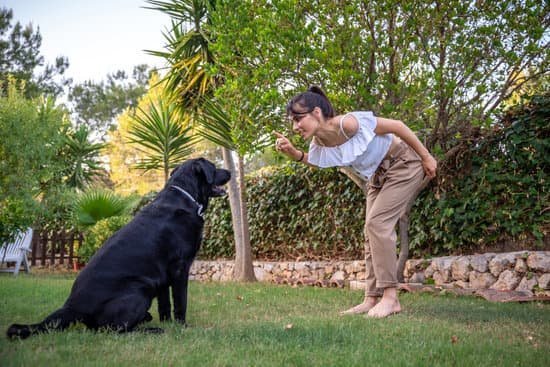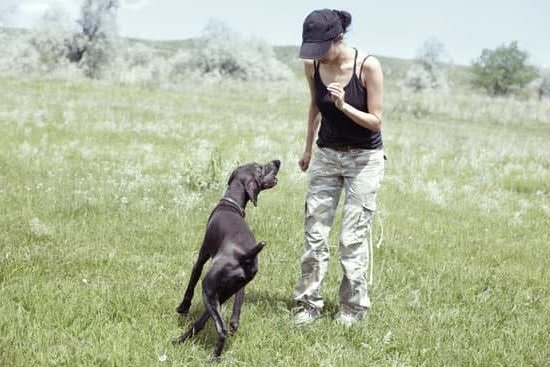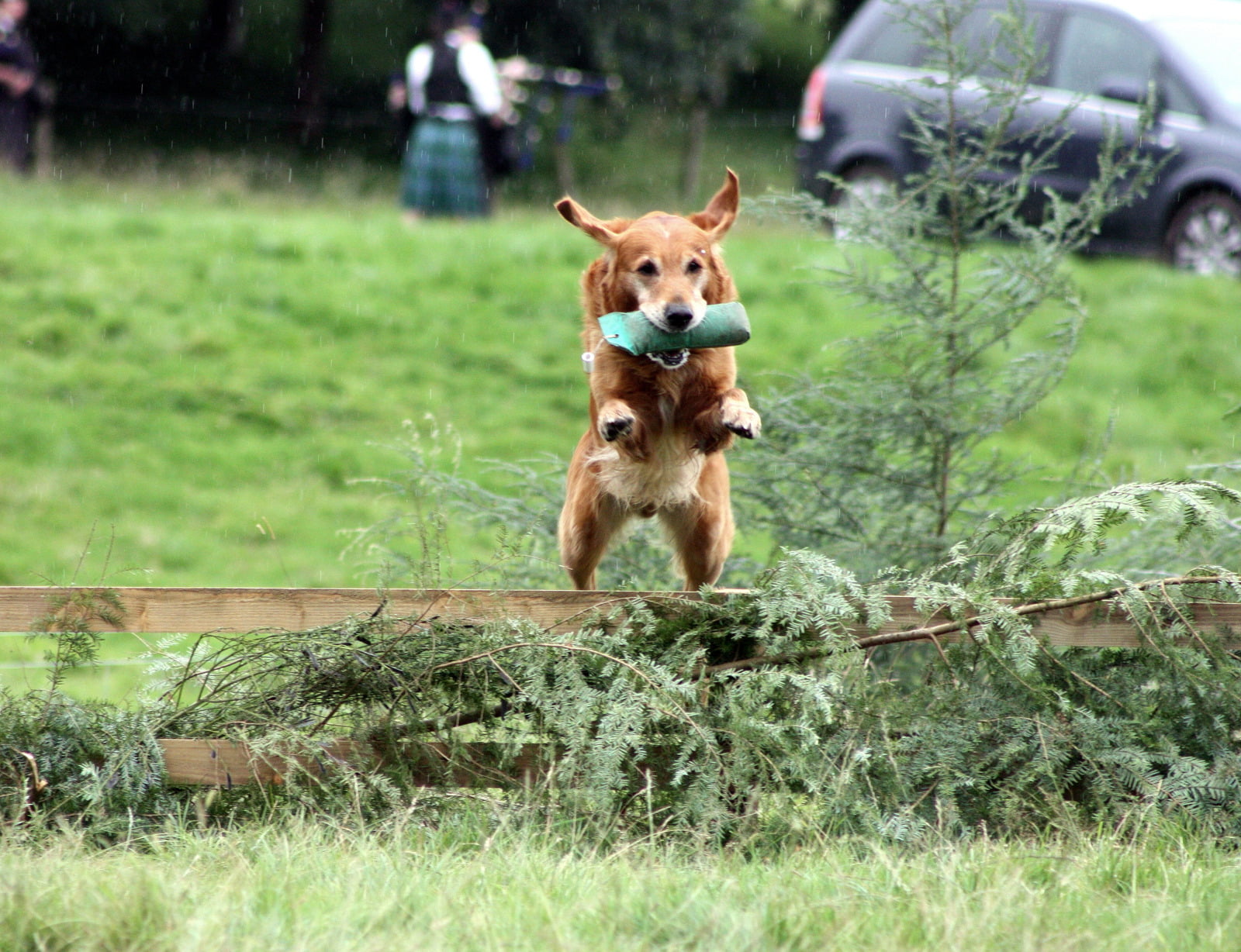Potty training is a crucial aspect of raising a well-behaved and happy dog. However, many dog owners experience setbacks and challenges during this process, including regression. In this blog post, we will delve into the reasons behind why dogs may regress in their potty training and explore effective strategies to overcome this hurdle.
Before we discuss regression specifically, let’s establish a solid foundation by understanding the basics of dog potty training. This includes recognizing the importance of consistency, positive reinforcement, and patience during the training process. By outlining the key steps involved in potty training and providing tips for success, we can ensure that our dogs develop healthy bathroom habits.
Regression in potty training can be frustrating for both owners and their furry companions. It is essential to recognize the signs of regression and understand its potential causes. Physical changes, emotional shifts, or environmental factors can affect a dog’s potty habits. By identifying these underlying triggers, we can implement targeted solutions to address regression effectively.
In the following sections of this blog post, we will explore common reasons for regression in dog potty training and provide actionable strategies to overcome it. We will also discuss when it may be necessary to seek professional help from veterinarians or dog trainers. By following our recommendations and staying committed to consistent training techniques, you can empower yourself as a dog owner to tackle potty training regression head-on and achieve long-term success for your four-legged friend.
The Normal Potty Training Process
The process of potty training a dog is an essential step in raising a well-behaved canine companion. Establishing a solid foundation during this phase is crucial for long-term success. To create a successful potty training routine, consistency, positive reinforcement, and patience are key. By following some basic principles and techniques, owners can set their dogs up for success in their potty training journey.
- Consistency: Consistency is vital when it comes to potty training your dog. Establishing a regular routine will help your dog understand when and where they should go to the bathroom. Take your dog outside to the designated potty area at consistent intervals throughout the day, especially after meals or naps. Be patient during these outings and wait until your dog eliminates before returning inside.
- Positive Reinforcement: Positive reinforcement plays a crucial role in potty training by rewarding desired behaviors. When your dog successfully goes to the bathroom outside, immediately praise them with verbal cues like “good job” or “well done” in an enthusiastic tone. You can also offer small treats as rewards to reinforce the behavior positively.
- Patience: Potty training takes time and patience; accidents are bound to happen along the way. It’s important not to scold or punish your dog for accidents indoors, as this can create anxiety or fear around eliminating altogether. Instead, clean up any accidents using enzymatic cleaners specifically designed for pet stains and odors to eliminate any residual scent that may attract your dog back to that spot.
By establishing a solid foundation built on consistency, positive reinforcement, and patience, you will be setting your dog up for success in their potty training journey. Remember that each dog is unique and may learn at their own pace, so it’s important to remain patient throughout the process. With time and dedication, you will be able to celebrate your pup’s progress and achieve long-term success in potty training.
Recognizing the Signs and Causes of Regression in Dog Potty Training
Understanding the Signs of Regression
Recognizing the signs of regression is crucial in addressing the issue effectively. One common sign is when a previously well-trained dog starts having accidents indoors or shows a reluctance to go outside to eliminate. This could be accompanied by inconsistent patterns, such as frequent accidents after periods of successful potty training. Additionally, dogs may exhibit signs of anxiety or distress when it comes to potty training, such as excessive whining, pacing, or nervousness.
Possible Causes of Regression
Regression in potty training can be caused by various factors. Physical changes, such as illness or injury, can disrupt a dog’s routine and lead to regression. Emotional changes, like anxiety or fear stemming from a traumatic experience, can also affect a dog’s ability to maintain their potty training habits. Furthermore, environmental changes such as moving to a new house or experiencing disruptions in their usual schedule can contribute to regression.
It’s important for dog owners to understand that regression is not always the result of intentional disobedience on the part of the dog but instead may stem from anxiety or other underlying issues. By recognizing these potential causes and shifting our approach to understanding and supporting our dogs through these challenges, we can better address regression in potty training and help our furry friends get back on track.
The Importance of Identifying Underlying Causes
Identifying the underlying cause(s) of regression is key in resolving the issue effectively. Without understanding what triggers this setback, it becomes difficult to provide appropriate solutions and support for our dogs. It may be helpful for dog owners to keep a journal documenting any changes or events that occurred around the time the dog started regressing in their potty training progress.
In cases where external factors are causing the regression, simply addressing those triggers may be sufficient for resolving the issue. However, if there are underlying medical conditions or behavioral issues contributing to the regression, it’s important to seek professional help. Consulting a veterinarian or dog trainer can provide valuable insights and guidance in diagnosing and addressing these underlying causes, ultimately helping our dogs regain their potty training skills.
Common Reasons for Regression in Dog Potty Training
Regression in dog potty training can be frustrating for owners, but it is a common occurrence that many dogs experience. Understanding the reasons behind regression can help dog owners address the issue effectively. There are several common reasons why a dog may regress in their potty training progress.
- Changes in routine and environment: Dogs thrive on consistency, so any changes to their daily routine or environment can cause regression in potty training. This includes moving to a new house, a change in the owner’s work schedule, or even rearranging furniture in the house. These changes can be confusing for dogs and may disrupt their established potty habits.
- Stress and anxiety: Dogs are sensitive creatures and can easily become stressed or anxious, which can lead to regression in potty training. Events such as the introduction of a new pet or family member, loud noises like fireworks or thunderstorms, or even changes in household dynamics can cause stress for dogs and affect their ability to properly signal when they need to go outside.
- Marking behaviors: Some dogs may regress in potty training due to marking behaviors. Marking is a natural instinct for dogs that involves them urinating small amounts on different objects or areas to mark their territory. If a dog starts marking inside the house after being fully potty trained, it can be a sign of regression caused by hormonal changes, anxiety, or even territorial disputes with other pets.
To address these common reasons for regression in dog potty training, it is essential for owners to identify the underlying cause(s) and take appropriate measures. Providing consistency and stability in the dog’s routine and environment is crucial during this phase. Owners should also ensure that their dogs have plenty of opportunities for playtime and exercise to help reduce stress levels.
Additionally, using positive reinforcement techniques such as praise and treats when the dog successfully eliminates outside can help them regain their confidence and motivation to follow proper potty training habits. It is important to be patient and understanding during this time, as regression is a normal part of the potty training process. With consistent training and proper management of any environmental or behavioral factors, most dogs can overcome regression and continue progressing towards successful potty training.
Solutions and Strategies
Reinforcing Positive Behaviors and Establishing Consistent Routines
One of the first steps in overcoming regression in dog potty training is to reinforce positive behaviors and re-establish consistent routines. Consistency is crucial when it comes to potty training, and this applies even more so when a dog is experiencing regression. By reinforcing positive behaviors, you can help your dog regain confidence and motivation in their potty training routine.
To reinforce positive behaviors, it’s important to reward your dog whenever they successfully go potty in the designated area or follow the desired routine. This can be done through verbal praise, treats, or a combination of both. Consistently rewarding your dog for good behavior will help them understand what is expected of them and incentivize them to continue the desired potty habits.
In addition to reinforcement, it’s essential to establish a consistent potty routine for your dog. Stick to a schedule for feeding, watering, and taking your dog out to eliminate. Consistency helps dogs understand when they are expected to go potty and creates a sense of predictability that can aid in overcoming regression. Be patient with your dog during this process as it may take some time for them to readjust to the routine.
Utilizing Potty Training Aids and Tools
Another strategy for overcoming regression in dog potty training is utilizing potty training aids and tools. These tools can assist in reinforcing good habits and minimizing accidents around the house.
Crate training can be highly effective in preventing accidents inside the house during periods of regression. Dogs have a natural instinct not to soil their sleeping area, so providing them with a crate that is just large enough for them to turn around comfortably can help encourage them to hold their bladder until you take them outside.
Puppy pads or artificial grass mats can also be useful tools during potty training regression. Placing these pads or mats in a designated area of the house can give your dog an appropriate spot to relieve themselves when they can’t make it outside. Gradually move the pads or mats closer to the exit door over time, encouraging your dog to associate going potty with being outside.
Seeking Professional Help
If your dog is experiencing persistent or severe regression in potty training despite your best efforts, it may be necessary to seek professional help. Consulting a veterinarian or a dog trainer who specializes in potty training can provide valuable insights and guidance in addressing underlying medical or behavioral issues.
A veterinarian can conduct a thorough examination to rule out any underlying medical conditions that may be contributing to the regression. They may also offer advice on managing any existing health issues that could be impacting your dog’s potty habits.
Consider seeking assistance from a qualified dog trainer who has experience dealing with potty training regression. They can analyze your dog’s specific situation, identify triggers for regression, and develop a tailored plan to address and overcome the issue. A professional trainer can also provide you with additional techniques and strategies based on their expertise.
Remember, overcoming regression in dog potty training requires patience, consistency, and understanding. With the right solutions and strategies in place, you can help your furry friend get back on track towards successful potty training habits.
Seeking Professional Help
When it comes to dealing with regression in potty training, there may be occasions where seeking professional help is necessary. Consulting a veterinarian or dog trainer can provide valuable insights and solutions for addressing underlying medical or behavioral issues that may be contributing to the regression. In this section, we will discuss when it is appropriate to reach out to these professionals and the benefits they can offer.
- Persistent or Severe Regression Issues: If your dog’s regression in potty training persists despite your best efforts to address it, it may be time to consult a veterinarian or dog trainer. These professionals have experience working with various cases and can help identify any potential medical conditions or behavioral problems that could be hindering progress. They can offer specialized advice tailored specifically to your dog’s individual needs.
- Medical Concerns: Sometimes, regression in potty training can be attributed to underlying health issues such as urinary tract infections, gastrointestinal disorders, or hormonal imbalances. A veterinarian will be able to conduct a thorough examination and run any necessary tests to rule out any medical causes contributing to the regression. Addressing these health concerns is crucial for successful potty training.
- Behavioral Challenges: Regression in potty training can also stem from behavioral issues such as anxiety, fear, or territorial marking behaviors. A dog trainer can provide guidance on addressing these specific behaviors through positive reinforcement techniques and behavior modification strategies. They can help you establish clear boundaries and create a structured environment that promotes proper potty habits.
It is important to note that seeking professional help should not be seen as a failure but rather as an additional resource to support you and your dog on your potty training journey. By consulting experts in the field, you are taking proactive steps towards resolving the regression and ensuring long-term success.
| When To Consult | Benefits |
|---|---|
| Persistent or Severe Regression Issues | – Specialized advice tailored to your dog’s needs
|
| Medical Concerns | – Thorough examination and tests to rule out medical causes
|
| Behavioral Challenges | – Guidance on behavior modification strategies
|
Preventing Regression in Dog Potty Training
Preventing regression in dog potty training is crucial for long-term success and maintaining a well-trained dog. After successfully potty training a dog, it is important to take proactive measures to prevent regression and ensure that the desired behaviors are maintained consistently. This section will provide some helpful tips and strategies for dog owners to prevent regression and achieve long-term success in potty training their pets.
- Maintain Consistency: Consistency is key when it comes to preventing regression in dog potty training. Keep the same routine and schedule that was established during the initial potty training phase. Make sure to take your dog out to the designated potty area at regular intervals throughout the day, especially after meals, naps, or playtime. Reinforce good behavior with rewards and praise consistently, so your dog understands what is expected of them.
- Ongoing Training: Potty training should not be viewed as a one-time task but rather an ongoing process. It is important to continue reinforcing good habits and providing consistent guidance even after your dog has been successfully trained. Regularly practice commands such as “go potty” or use a specific word or phrase that signals it’s time for them to eliminate.
- Positive Reinforcement: Positive reinforcement goes a long way in shaping desired behaviors and preventing regression in potty training. Whenever your dog eliminates in the appropriate place, make sure to reward them with treats, toys, or verbal praise. This positive association will reinforce the idea that going potty in the designated area is rewarding and encourages them to repeat the behavior.
Implementing these tips consistently will help prevent regression in dog potty training and create long-term success in maintaining proper elimination habits. It is important for owners to understand that occasional setbacks may occur, but with patience, consistency, and positive reinforcement, they can quickly get back on track with their dog’s potty training progress. Taking the time to establish a solid foundation and continuously reinforce good habits will lead to a well-behaved and reliably trained dog.
| Tips for Preventing Regression in Dog Potty Training |
|---|
| Maintain Consistency |
| Ongoing Training |
| Positive Reinforcement |
Conclusion
In conclusion, potty training regression is a common issue that many dog owners face during the training process. However, with the right approach and support, it can be overcome. By understanding the basics of dog potty training and establishing a solid foundation through consistency, positive reinforcement, and patience, owners can set their dogs up for success.
Recognizing the signs and causes of regression is crucial in effectively addressing the issue. Owners should consider physical, emotional, or environmental changes that may be affecting their dog’s potty habits. Identifying the underlying cause(s) will help in implementing appropriate solutions.
There are various reasons why regression may occur, such as new environments or changes in routine. Additionally, behavioral aspects like anxiety or marking behaviors can contribute to regression. By understanding these factors and implementing solutions and strategies recommended by professionals, owners can overcome regression and achieve potty training success.
It is important to remember that persisting through setbacks and celebrating progress is key. Dog owners should stay committed to their training efforts and seek professional help if necessary. With ongoing training, consistency, positive reinforcement, and proactive measures to prevent regression, long-term success in potty training can be achieved.
Frequently Asked Questions
What to do when a potty trained dog regressing?
When a potty trained dog starts regressing, it is important to determine the underlying cause before taking any action. Some common reasons for regression include changes in routine, stress or anxiety, medical issues, or simply forgetting the training. Firstly, it is crucial to rule out any potential health concerns by taking your dog to the veterinarian. If no medical issues are found, evaluate if there have been any recent changes in the dog’s environment or routine that could be causing stress or anxiety.
Providing extra reassurance and consistency can often help address these issues. Additionally, make sure you are reinforcing the potty training consistently and positively. Take your dog outside more frequently, monitor their behavior closely for signals they need to go potty, and reward them when they do eliminate in the appropriate place. Patience and consistency are key when addressing regression and working towards getting your dog back on track with their potty training.
Is it normal for dogs to regress in training?
It is not uncommon for dogs to experience regressions in training from time to time. Dogs, especially younger ones or those who have experienced major life changes like moving homes or adding new pets to the family, may occasionally forget their training or exhibit unwanted behaviors that were previously eradicated through training efforts. This regression often occurs due to various factors such as unfamiliar surroundings, new distractions, fear/anxiety triggers or even lack of reinforcement of learned behaviors.
Nevertheless, regressions should not be seen as a failure but rather as an opportunity for retraining and fine-tuning areas where improvement is needed. With patience and consistent positive reinforcement, most dogs can easily get back on track with their training.
Why is my potty trained dog suddenly pooping in the house?
There can be several reasons why a potty trained dog suddenly starts pooping inside the house after previously being reliable with their bathroom habits. One possible cause could be a medical issue such as diarrhea or gastrointestinal problems that lead to urgency and accidents indoors. It is important to rule out any health problems by consulting with a veterinarian. Another potential reason could be stress or anxiety, which might occur due to changes in the environment, routine, or household dynamics.
Dogs are creatures of habit, and even small disruptions can trigger temporary setbacks in their training. Ensuring a consistent routine, providing plenty of mental and physical stimulation, and offering a calm environment can help alleviate stress-related accidents. Additionally, it’s important to consider whether any recent changes have been made to the dog’s diet or feeding schedule as this can also impact their bowel movements. Reinforcing potty training habits by taking the dog outside more frequently and rewarding them for appropriate elimination can be helpful during this phase of regression as well.

Welcome to the blog! I am a professional dog trainer and have been working with dogs for many years. In this blog, I will be discussing various topics related to dog training, including tips, tricks, and advice. I hope you find this information helpful and informative. Thanks for reading!





